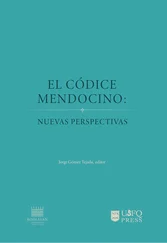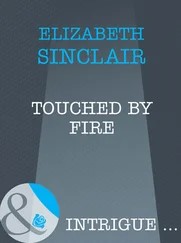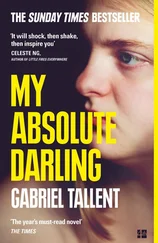What she needs from him: a last-minute sign that she is loved.
Where she is: the hallway that leads to the bedrooms. The door that is open belongs to the guest bedroom. Another door, nearer, is open as well: the bathroom. From this doorway her brother emerges, his back to her, his head ducked or bowed toward the bundle in his arms, and pity suffuses her before she understands that the long spindly white objects lolling over her brother’s arm are her father’s shins, that her brother’s arm supports her father’s knees and those are her father’s bare feet hanging in mid-air, jostling with her brother’s careful steps, that is what you see when a child is carried, those sleeping feet, and can that really be her father, is he no more than an armful of bones, light enough for her brother to carry the rest of the way down the hall to the guest bedroom, in whose doorway he turns sideways, ensuring clearance for her father’s dangling feet, for, tipped up against her brother’s other arm, the big gorgeous vigilant head ransacked of every bit of expressive flesh, the sockets of his eyes harsh craters of shadow much too big for the puny bulge of the closed lids. She stands at the other end of the hall from them. For her father to submit to being carried is a blow as terrifying as the annihilation of his male grace and authority. If she turns around and leaves, none of them will ever know she was here. But her brother, in turning sideways in the doorway, has looked down the hall. He has seen her. His grimace means Give me a minute to get him settled , or so she interprets it. With her father in his arms her brother disappears, moving toward the bed, she supposes. The door is ajar, or she would be able to see who else is in the room.
She goes down the hall toward the doorway, and knocks on the jamb, watching her brother lay her father down in the twin bed, her brother seeming almost to unfold her father’s body, stick by stick, from the bundle it had made in his arms, the big skull with its silvery white swept-back hair tipped upright on two pillows turning toward her knock, eyes staring from the sinkholes of their sockets, lips drawn back from teeth that seem too big for the face, stubbornly recognizable teeth, the idiosyncrasies of the individual teeth, their degree of discoloration, so familiar that in her mind she greets them, she experiences his teeth as a revelation, yes this is her father whose bone-arms with their outsize elbows and wrists thrash at her startled brother, the squalling moan from low in his throat, from, almost, his chest, Aww awww aaara eeere , disrupted by a violent hard-won jerk of his head, the moan resumed, Awww aaarragh. Go away , she hears, go away , and backs through the doorway, and listens from the hall as her brother calms him, Dad, it’s okay, Dad, it’s all okay , and she does not know what to do except stand there listening, understanding from some progression in her brother’s reassurance that her father has relaxed back into the pillows.
10
Where has her brother-in-law gone, has he taken the kids out to eat, maybe? In the kitchen she makes herself a cup of tea. A stain in the porcelain sink bothers her. She can’t have caused that. She only just got here. From under the sink she retrieves her mother’s old-fashioned scouring powder and a pair of her gloves — pulling these on makes her feel closer to her mother than she had, seeing her face. She scours until the stain fades and vanishes. She’s not an irresponsible person. In the morning she’ll call the car rental agency to find out how much damage she did.
On the striped couch in the living room she drinks the cold tea. She feels almost at home on this couch. In an inexplicable break from her chaste aesthetic, her mother had ordered the striped fabric as a daring contrast to the room’s pale monochrome. When the reupholstered couch was delivered, its pattern loomed much larger than she had expected, swaggeringly, flamboyantly huge, and her Depression-traumatized mother, who wrings the last minim of use from every frayed and stained and unraveling possession, had resigned herself to wincing toleration of the beast until it wears out. When her daughter strokes its arm, the striped velvet seems good as new — the couch has a long way to go.
Other pieces of the story had been confided, when the mood struck her father. “You know that churchgoing woman took credit for me being alive,” he’d said, amused. “Claimed she got down on her knees there at the edge of the drop-off and Jesus heard her.” A month after the wreck of the Model T, the Baptist lady had charmed his mama into laying back in the preacher’s hands and letting the river flow through her hair and over her closed eyes; after she walked out of that river, her father said, it wasn’t just his mama’s sins washed away, but the old, easygoing life the family had led. Strictness clamped down, no taking the Lord’s name or running around in the woods with neighbor girls. No dancing. Whippings whenever his mama took a whim, as she did every washday, her fury blushing her wide cheeks with a rosiness in other circumstances he’d have found pretty, wrath pinking her throat and the heavy arms bared for thrusting into harsh-smelling soapsuds. Out of her four children it was nearly always he who caught her eye. Impudence, she believed she read in his face, and in a strong voice she’d call to him to find a switch in the woods, and when he came back with the switch she told him to let his pants down and turn around and used it to administer a series of slashing strokes. Finally one day when he was told to go find a switch he searched the woods for the worst he could find, choosing a briar cane whose savage thorns would dissuade her from ever applying it to his skin. He tested their tips with his thumb, and grinned. Inconceivable that she could bring herself to lash him with an instrument so wickedly equipped to draw blood, and he carried it back to the yard where his mama straightened from the tub, wiped her hands down her front, and assessed the briar switch, figuring out at once what he was counting on — he should have remembered how hard she was to fool. “Made sure I’d never forget that briar switch,” he said.
11
Sounds from the kitchen wake her: her sister making a sandwich for her younger son, who sits in a chair drawn up to the table, playing with her mother’s salt and pepper shakers, clicking them together in a monotonous yet random rhythm. For all she knows he could be clacking out a Donne sonnet in Morse code: the boy, who falls mute at the least contradiction and can go days without saying a word, is also arrestingly brilliant, and homeschooling him has been her sister’s consuming years-long project. Her sister comes out and sits at the other end of the couch and says, “It’s just after midnight. I’m glad you got some sleep,” and then goes back to the kitchen to sit and watch her boy eat. “Any change in Dad?” she calls to her sister, and her sister says, “Just one time he came awake enough to feel pain, Mom gave him more medicine, and since then he’s been peaceful. Mom has been a rock.” The hospice worker, after opening the front door, had said much the same: Your mother’s been amazing. “John took the kids home. I’m going to get this young man home to bed, too, if he will only finish his supper.”
Her boy says, “I want to stay.”
“You’re so tired you can hardly see straight,” her sister says — a phrase of their father’s.
Her son says, “I want to stay.”
From the couch she calls, “He’s not going to jump out of the car.” In the past her sister has more than once pointed out the bafflement her teasing riddles and non sequiturs inflict on her niece and nephews, and when her sister’s boy says, “What car?” she says, “A story your grandfa—”, her sister interrupting, “How Grandpa was saved by the stump the runaway car snags on,” and with his strict adherence to accuracy her boy says to her, his aunt, “I am not in that story,” an assertion his mother confirms, formally, “No, you’re not,” and sorry to have caused this peculiar trouble she runs her hand over striped velvet, thinking So he told that story to everyone , then Why did I think it was only me , hearing her sister tell the boy, “This is hard for you, I see that, really hard, and I understand you want to help all you can, but Grandpa can’t see or hear any of us anymore. He’s not aware anyone is in the room with him, not even you. That part is over, when the sound of our voices gave him some consolation,” and she thinks it’s extraordinary, the honesty with which the mother talks to son, the depth between them, trust accruing from a million tiny proffers of truth, not an experience, probably, any child of a previous generation of their family has ever had, and who is it whose place she would take if she could, her sister’s or the boy’s? She wants to be them both. That’s what her sister has always seemed to distrust about her, she guesses: the taint of envy in her approach to her sister’s children isn’t lost on her sister, and down at the primal level where even the faintest, most imaginary threat to a child meets with a parent’s hostility, her sister can’t help but be angry with her, and to want to screen her son from her — or is she misreading the mother’s understandably amped-up solicitude toward the difficult boy, does it really have anything to do with her? After her sister bundles the boy into his snow jacket, she bends to retrieve something from the boots jumbled on the closet floor, then tugs the striped hat down over her boy’s ears before asking, in an exhausted voice, “Is this yours? I guess this is yours,” and when the boy says nothing his crouching mother says, “Whose else would it be,” and the mistake feels right to her, and she watches the mother usher the boy in the charming striped hat out into the night. She thinks that, to most seven-year-olds, the word consolation would probably be a mystery.
Читать дальше












